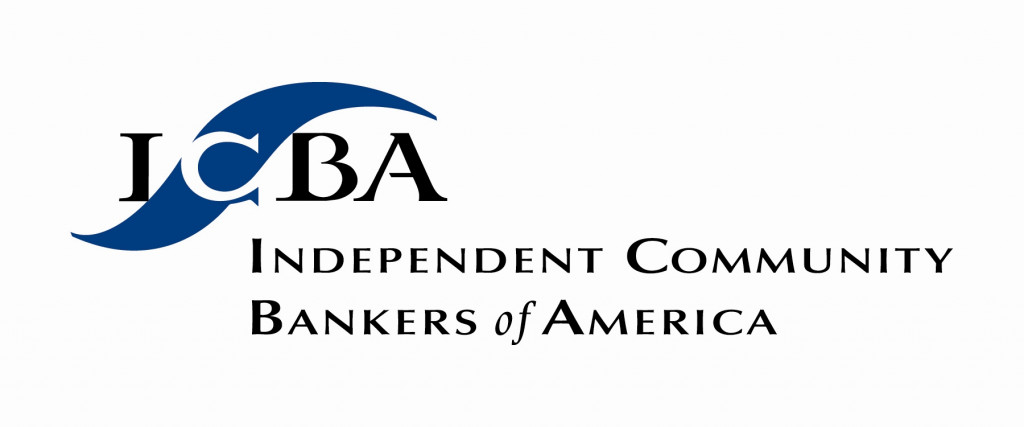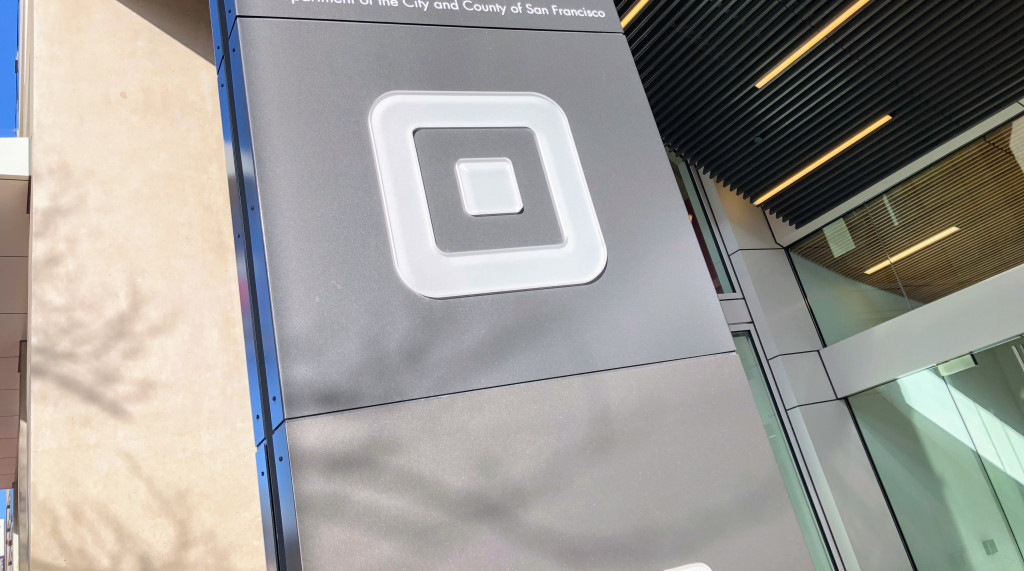Investment in Fintech Soars in 2018
August 6, 2018 Fintech investment in the Americas reached a new high of $14.8 billion for the first half of 2018, according a KPMG report. This was spread across 504 deals. The bulk of the investment, $14.2 billion, went to U.S. companies.
Fintech investment in the Americas reached a new high of $14.8 billion for the first half of 2018, according a KPMG report. This was spread across 504 deals. The bulk of the investment, $14.2 billion, went to U.S. companies.
Big fintech deals in the U.S. this year spanned a range of sub-industries, from blockchain (R3, Circle Internet) and Cryptocurrencies (Basis) to Insurtech (Lemonade, Oscar) and wealth management (Robinhood). The largest deal of the year was the acquisition of Boston-based Cayan, a payment technology company, by global payments solutions provider TSYS, for $1.05 billion.
While the U.S. accounted for the majority of fintech investment in the Americas, there was notable fintech investment in other countries. Brazil-based Nubank held the fourth largest VC round in the Americas during the first half of the year with a $150 million Series E raise.
“While an outlier in terms of deal size, the Nubank deal highlights the growing importance VC investors are placing on Brazil as an epicenter for fintech innovation in Latin America,” the report read.
Fintech investment in Canada continued to evolve in the first half of 2018 with $263 million in total. However, this was actually a decrease compared to the second half of 2017 which brought in $510 million for Canadian fintech companies.
The Canadian government is in the process of updating its Bank Act, which is expected to occur in 2019. And Payments Canada, a government organization, is also undertaking a multi-year payments modernization initiative aimed at upgrading critical infrastructure. According to the KPMG report, while both of these initiatives are in the process of happening, VC investors and fintechs recognize that change is coming and are trying to position themselves to take advantage of the changes once they are implemented. San-Francisco based fintech, Plaid Technologies, announced in May of this year that it would be expanding into the Canadian market. The report indicates that other U.S. companies will likely follow suit.
Signature Bank Expands West
August 6, 2018 Signature bank announced last week that it received approval from both the New York State Department of Financial Services and the Federal Deposit Insurance Corp. (FDIC) to begin operating in California. The Bank already opened an accommodation office at the beginning of the year as it began preparations to introduce its single-point-of-contact banking model on the west coast. The single-point-of-contact model means that a client deals with only a small teams for all of its needs.
Signature bank announced last week that it received approval from both the New York State Department of Financial Services and the Federal Deposit Insurance Corp. (FDIC) to begin operating in California. The Bank already opened an accommodation office at the beginning of the year as it began preparations to introduce its single-point-of-contact banking model on the west coast. The single-point-of-contact model means that a client deals with only a small teams for all of its needs.
“There is significant talent on the west coast, and our established single-point-of-contact approach has already been very well received since the bank launched its presence in San Francisco,” said Signature Bank President and CEO Joseph J. DePaolo. “We look forward to expanding our footprint in California and bringing privately owned businesses the same level of client commitment, care and service for which this bank has become known.”
Signature Bank focuses on privately owned business clients, providing them with business loans, equipment finance and leasing, as well as SBA loans. Although a Signature Bank spokesperson said that SBA loans make up a very small percentage of the bank’s loans. Since opening May 2001, the bank has made $33.25 billion in loans. According to the bank’s second quarter earnings report, the bank’s provision for loan losses for the second quarter of 2018 was $8.0 million, compared with $187.6 million for the second quarter of last year. The previously elevated provisions were due to the bank’s New York City taxi medallion loan portfolio. (The value of New York City taxi medallions has dropped dramatically with competition from driving services like Uber.)
According to the bank’s website, it serves the “financial needs of privately owned businesses, their owners and senior managers – a group of clients who often find themselves underserved by the [New York] area’s larger financial institutions.”
Signature Bank is a full-service commercial bank with offices in the five boroughs of New York City, as well as Nassau, Suffolk and Westchester counties in New York and Fairfield County in Connecticut.
Trade Group Urges FDIC to Reject NelNet Bank Application
August 3, 2018 On Wednesday, the Independent Community Bankers of America (ICBA) asked the Federal Deposit Insurance Corp. (FDIC) to deny Nelnet’s application to become an Industrial Loan Corporation (ILC) bank. ILC banks are special purpose banks that are not required to adhere to the same regulations as other banks, yet they can bear the same risk of failing.
On Wednesday, the Independent Community Bankers of America (ICBA) asked the Federal Deposit Insurance Corp. (FDIC) to deny Nelnet’s application to become an Industrial Loan Corporation (ILC) bank. ILC banks are special purpose banks that are not required to adhere to the same regulations as other banks, yet they can bear the same risk of failing.
“The ILC loophole allows commercial interests to own full-service banks while avoiding the legal restrictions and regulatory supervision that apply to other bank holding companies—threatening the financial system and creating an uneven regulatory playing field,” said ICBA President and CEO Rebeca Romero Rainey in a statement.
Furthermore, in a letter to the FDIC, the community bank trade group proposed a two year moratorium on future ILC bank applications. ILC bank charters are attractive to fintech companies because they offer reduced regulations (compared to traditional bank charters) and access to all 50 states.
“To support a safe and sound financial system and to maintain the separation of banking and commerce, the FDIC should impose a two-year application moratorium and Congress should close the ILC loophole for good,” Rainey said. “Our deposit-insurance system was created to protect depositors—not commercial firms.”
ICBA’s letter references the fairly recent ILC bank applications of two other fintech companies, SoFi and Square. Square withdrew its application last month, but said it had plans to refile. SoFi withdrew its application last October following sexual harassment allegations against its then CEO Mike Cagney. The company has not stated that it has plans to refile the application.
The ICBA’s request for a moratorium on applications for ILC bank charters comes right after the U.S. Office of the Comptroller of the Currency (OCC) opened its doors this week to fintechs interested in obtaining special purpose bank charters. So now fintechs have a few options if they aspire to become a bank.
The ICBA’s mission is to advocate for the community banking industry. It represents nearly 5,700 community banks in the U.S.
Apple Pay is Closing in On PayPal
August 2, 2018 According to Apple’s quarterly earnings that were released on Tuesday, Apple Pay transactions tripled from last year at the same time to more than 1 billion transactions. CEO Tim Cook said during Apple’s recent earnings call that this is more than Square did in the last quarter and exceeded the number of mobile transactions via PayPal. PayPal, the industry leader, reported 2.3 billion transactions over the last quarter. This still puts them well ahead of Apple Pay, by 1.3 billion; but not as far ahead as last year, when PayPal led by almost 1.8 billion.
According to Apple’s quarterly earnings that were released on Tuesday, Apple Pay transactions tripled from last year at the same time to more than 1 billion transactions. CEO Tim Cook said during Apple’s recent earnings call that this is more than Square did in the last quarter and exceeded the number of mobile transactions via PayPal. PayPal, the industry leader, reported 2.3 billion transactions over the last quarter. This still puts them well ahead of Apple Pay, by 1.3 billion; but not as far ahead as last year, when PayPal led by almost 1.8 billion.
Apple also reported today that it hit a $1 trillion market cap. The success of Apple Pay is further confirmation that giant technology companies are also becoming fintech companies. Google has the Google Pay service and Facebook’s WhatsApp is rolling out a payment feature. To keep up with fintechs, last year, a group of the largest American banks (including Bank of America, Wells Fargo and Capital One) launched Zelle, a peer to peer payment service. So far, Zelle has proven to be a good idea.
According to eMarketer, a research firm, Zelle is expected to surpass Venmo this year in terms of users. With these expectations, Zelle will grow by more than 73% in the US, to 27.4 million users by the end of the year, outpacing Venmo (owned by PayPal), which should have 22.9 million users and Square Cash, which should have 9.5 million.
Lengthy Investigation Leads to Arrest of Former Funding Company Employee
August 2, 2018 A former Yellowstone Capital employee was arrested yesterday in New York City, the culmination of what Yellowstone CEO Isaac Stern said was a nearly year-long investigation that involved law enforcement in New York, New Jersey and Florida.
A former Yellowstone Capital employee was arrested yesterday in New York City, the culmination of what Yellowstone CEO Isaac Stern said was a nearly year-long investigation that involved law enforcement in New York, New Jersey and Florida.
The former employee was charged as a Fugitive of Justice in New York. And he is being charged with 3rd degree Theft by Deception and two computer related crimes in New Jersey, according to Stern. This person’s name is being withheld as he has not been convicted. According to Stern, the employee started working for Yellowstone last year as a rep at the company’s Jersey City office. He then left the company on his own volition to move to Florida. When Yellowstone opened a Florida office in May 2017, the man was rehired by Yellowstone to manage the data entry operation at the new office.
The man was terminated in September of 2017 for reasons unrelated to these charges. Following his termination, Stern said that the company noticed a trend where merchants were being solicited after submitting new deals. Simultaneously, the company saw an increase in concerns raised by its ISO partners regarding backdooring. (Backdooring is when a broker submits a potential deal to a funder and that file leaks out to third parties whom the broker did not authorize to handle the information.)
In response to this, the company created a task force comprised of cyber security professionals that ultimately traced the leak to this former employee. A number of people have been arrested for stealing information from Yellowstone, but Stern said that this was by far the largest and most sophisticated theft.
“Nothing has hurt us more than this leak,” Stern said, “and it would have been impossible to catch this guy if we didn’t have a full-time team.”
The team Stern refers to is what he says has now become a separate Yellowstone office at an undisclosed location that is devoted exclusively to security. He said Yellowstone spent about $250,000 developing this external office and upgrading the company’s security systems. Additionally, employees and others can now anonymously email: security@yellowstonecapllc.com with information related to potential theft.
Square Capital is Funding $130 Million a MONTH
August 1, 2018 Today Square released its Q2 2018 earnings, revealing that in the second quarter Square Capital facilitated over 60,000 business loans totaling $390 million. This is an increase of 22% year over year, and a 13% increase compared to last quarter’s loan volume of $339 million.
Today Square released its Q2 2018 earnings, revealing that in the second quarter Square Capital facilitated over 60,000 business loans totaling $390 million. This is an increase of 22% year over year, and a 13% increase compared to last quarter’s loan volume of $339 million.
Square’s growth was also driven by its Instant Deposit, Caviar and Cash Card products. Additionally, second quarter growth came from Square’s acquisitions, including Weebly, which provides tools to help individuals and small businesses create websites or online stores.
In today’s earnings call with Square CEO Jack Dorsey and CFO Sarah Friar, an analyst asked about plans for development of Square Capital. In response, Friar said that they plan for Square Capital to grow as the Square customer base grows. But she said Square is also taking more proactive steps to acquire Square Capital customers, including partnerships. Just last week, Square partnered with eBay to make loans to eBay merchants.
“We’re looking to partner [with companies] where their customers look like Square sellers,” Friar said.
Founded by Jack Dorsey and Jim McKelvey in 2009, Square is headquartered in San Francisco, with offices also in Canada, Japan, Australia, Ireland, and the UK. Dorsey is also the CEO of Twitter.
Can Fintech Startups Become Banks? OCC Opens The Gates
August 1, 2018 Yesterday, the U.S. Treasury Department released a report that prompted the Office of the Comptroller of the Currency (OCC) to say that it would start accepting applications from fintech for special purpose national bank charters.
Yesterday, the U.S. Treasury Department released a report that prompted the Office of the Comptroller of the Currency (OCC) to say that it would start accepting applications from fintech for special purpose national bank charters.
This is boon for fintech companies that, until now, have mostly been prevented from applying for national bank charters because of protest from banks and others that they will not be subject to adequate regulations. But now the OCC, a significant regulator, is opening the door for non-depository fintech companies – like OnDeck and Kabbage – to become banks.
“Over the past 150 years banks and the federal banking system have been the source of tremendous innovation that has improved banking services and made them more accessible to millions,” said head of the OCC, Comptroller of the Currency, Joseph M. Otting, in a statement. “The federal banking system must continue to evolve and embrace innovation to meet the changing customer needs and serve as a source of strength for the nation’s economy…Companies that provide banking services in innovative ways deserve the opportunity to pursue that business on a national scale as a federally chartered, regulated bank.”
The main advantage for fintech companies of having the opportunity to get their own bank charter is that they would now be able to operate nationwide under a single licensing and regulatory system, instead of a myriad of state licenses. Currently, fintech companies must adhere to the regulations in each state where they do business, which can be expensive. And some states have regulations that are stricter than others. That is why this news is bad news for states that feel that this development will allow fintech companies to bypass and undermine their regulation designed to protect consumers.
The OCC’s decision is the latest development in a years long, sustained effort by fintechs to become banks. In fact, for the last several years, Fintech companies have tried attaining bank status by getting the Utah Department of Financial Institutions to allow them to become Industrial Loan Company (ILC) banks. So far, Square, SoFi and NelNet have tried, in some capacity, to become an ILC bank.
The New York Department of Financial Service and the Conference of State Bank Supervisors (CSBS) was angered by the OCC’s decision.
“An OCC fintech charter is a regulatory train wreck in the making,” said CSBS President John W. Ryan in a statement. “Such a move exceeds the current authority granted by Congress to the OCC. Fintech charter decisions would place the federal government in the business of picking winners and losers in the marketplace. And taxpayers would be exposed to a new risk: failed fintechs.”
He said that his organization is keeping all options open to stop what he says is regulatory overreach.
The OCC indicated in its announcement that fintech companies that become special purpose national banks will be subject to heightened supervision initially, similar to other banks. But these special purpose banks would not have to abide by the stricter regulations of deposit-taking banks and they would not have to be insured by the Federal Deposit Insurance Corporation (FDIC) either.
“It is hard to conceive that insured national banks will allow the OCC to allow a fintech entity a national bank charter without insisting that all national bank obligations apply—which is what fintech companies want to avoid,” said Joseph Lynyak, partner and regulatory reform specialist at the law firm Dorsey & Whitney.
Elevate Explains Why Ohio Payday Law Won’t Hurt Them
July 31, 2018 In Elevate’s Q2 2018 conference call yesterday, Chairman and CEO Kenneth Rees mentioned that Elevate wasn’t worried about an Ohio bill, signed into law yesterday, that places significant restrictions on what payday lenders can do in the state.
In Elevate’s Q2 2018 conference call yesterday, Chairman and CEO Kenneth Rees mentioned that Elevate wasn’t worried about an Ohio bill, signed into law yesterday, that places significant restrictions on what payday lenders can do in the state.
The Fairness in Lending Act (House Bill 123) will close a loophole that payday lenders have been using to bypass the state’s 28 percent maximum APR on loans. The law will go into effect at the end of October of this year.
“We don’t believe this legislation will have a material impact on our business for a couple of reasons,” Rees said on the earnings call. “First, the law would only impact our RISE product…and we believe we can migrate most of our RISE customers in Ohio into an Elastic loan or a Today Credit Card.”
Elevate’s RISE product provides unsecured installment loans and lines of credit, while the company’s Elastic product, its most popular, is a bank issued line of credit. Elevate’s Today Credit Card, a partnership with Mastercard, was just launched and is unique in that it offers prime-like features to subprime customers.
The other reason why Rees is not very concerned about the new law is because he said that that RISE Ohio only represents less than five percent of the company’s total consolidated loan balances. Rees said that there may even be opportunity resulting from Ohio’s new Fairness in Lending Act because he said the law will likely reduce credit availability, potentially creating increased demand for Elevate’s Elastic and Today Card products, which he indicated would be acceptable under the new law. The new law does the following:
- Limits loans to a maximum of $1,000.
- Limits loan terms to 12 months.
- Caps the cost of the loan – fees and interest – to 60 percent of the loan’s original principal.
- Prohibits loans under 90 days unless the monthly payment is not more than 7 percent of a borrower’s monthly net income or 6 percent of gross income.
- Prohibits borrowers from carrying more than a $2,500 outstanding principal across several loans. Payday lenders would have to make their best effort to check their commonly available data to figure out where else people might have loans. The bill also authorizes the state to create a database for lenders to consult.
- Allows lenders to charge a monthly maintenance fee that’s the lesser of 10 percent of the loan’s principal or $30.
- Requires lenders to provide the consumers with a sample repayment schedule based on affordability for loans that last longer than 90 days.
- Prohibits harassing phone calls from lenders.
- Requires lenders to provide loan cost information orally and in writing.
- Gives borrowers 72 hours to change their minds about the loans and return the money, without paying any fees.
Apart from brief discussion of the minimal impact of this new Ohio law, Elevate shared its Q2 revenue of $184.4 million, a 22.5 percent increase over last year at the same time.






























